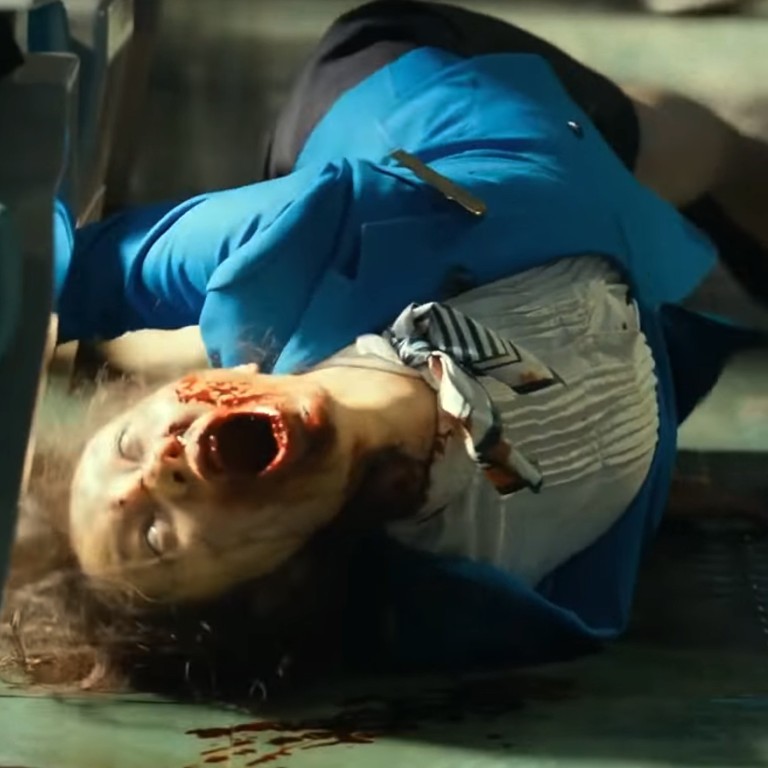
The Odd Family, Train to Busan 2: Korean zombie movies come back to life as a political force
- The Odd Family: Zombie On Sale has resurrected South Korea’s interest in the undead
- But, like previous incarnations of the genre such as Train to Busan, this outlandish horror flick has something to say about the living, too
The family at the centre of The Odd Family: Zombie On Sale , the latest horror film to have caught the South Korean public’s imagination, are down on their luck. The garage and service station they operate makes little money, so they resort to ripping off visitors from out of town.
But when a zombie appears in their countryside village, rather than fear for their lives, they find what could be the solution to their financial troubles. In a twist to the usual zombie formula, the first person bitten – the elderly patriarch of the family – turns not into a brain-dead, flesh-craving monster, but a more youthful version of himself. And when his new-found vigour arouses the curiosity of his friends, he offers to give them a bite of the action too – for a price.
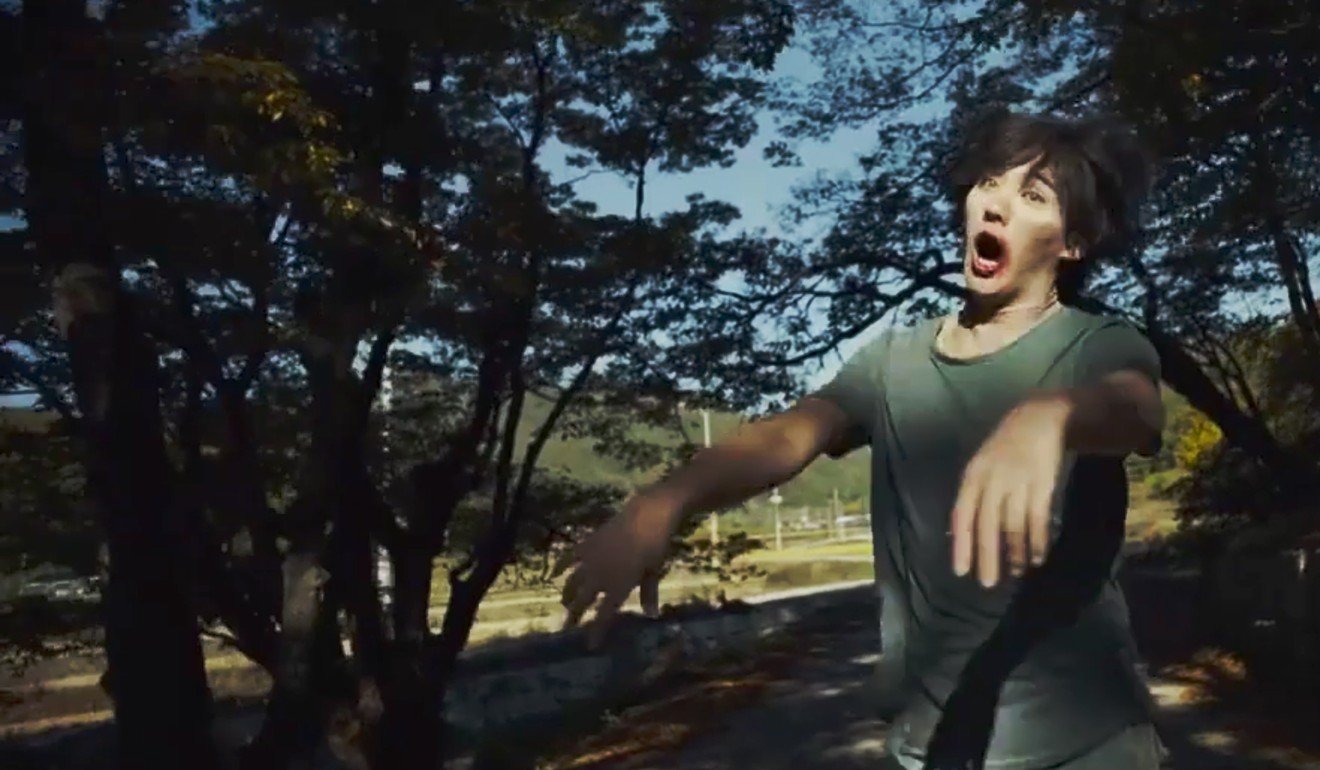
What follows is a silly, entertaining, and at times cringe-inducing story where the quiet village is turned upside down and the undead battle in the street. Or, at least, that is what most viewers see. Keener eyes observe in The Odd Family and its predecessors like 2016’s runaway smash hit Train to Busan something deeper – metaphors for everyday life, class divisions and government ineptitude.
In Train to Busan , in which zombies take over a train on South Korea’s high-speed rail system, passengers – including the main character played by heartthrob Gong Yoo – soon learn they can rely only on themselves as help from the authorities is not forthcoming and the government is covering up the truth. Its storyline has been widely interpreted as a veiled criticism of Seoul’s handling of disasters, especially a tragic ferry sinking in 2014 and an outbreak of the Mers virus the following year.
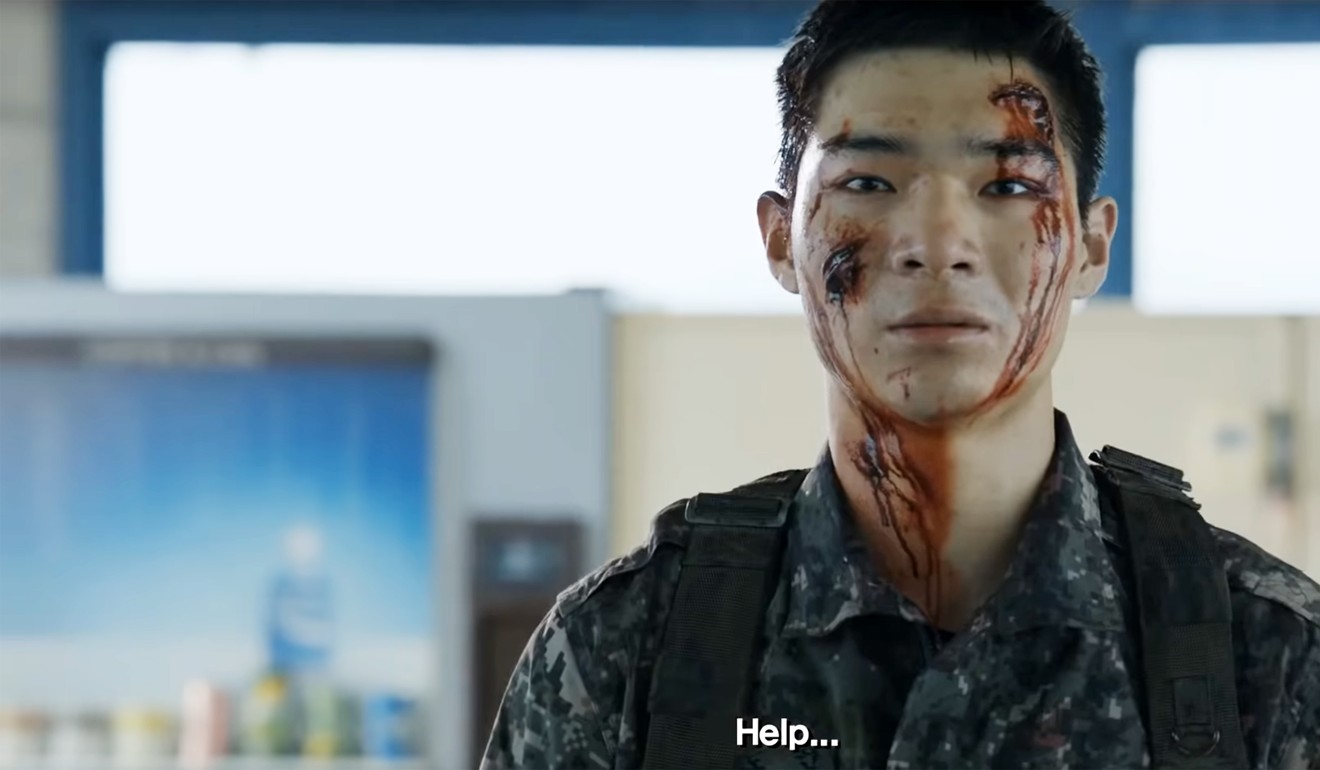
Social commentary is also very much alive in Rampant , a 2018 period flick starring A-list actors Hyun Bin and Jang Dong-gun. Set in the Joseon dynasty (1392-1910) and featuring armies of “night demons”, Rampant delves into the corruption and inequality of the era. In a similar vein, 2019’s Kingdom , a Netflix original series, depicts Joseon-era royalty jostling for power while scrambling to contain a spreading zombie plague.
The Odd Family runs with the idea of social commentary, putting a novel spin on the genre by setting its story far from the bright lights of the big city, and hinges its narrative upon a zombie having a marketable ability that gets exploited for private gain.
“Korean cinema is heavily influenced by the commercial nature of American cinema, and as such, a lot of trends that are popular in the United States make the transition here, and zombies are no exception. Just as zombies are metaphors for social anxieties and issues in American films, the same can be said for the recent resurgence of the undead in Korea,” said Simon McEnteggart, a Seoul-based film writer who maintains Hanguk Yeonghwa, a website dedicated to Korean cinema.
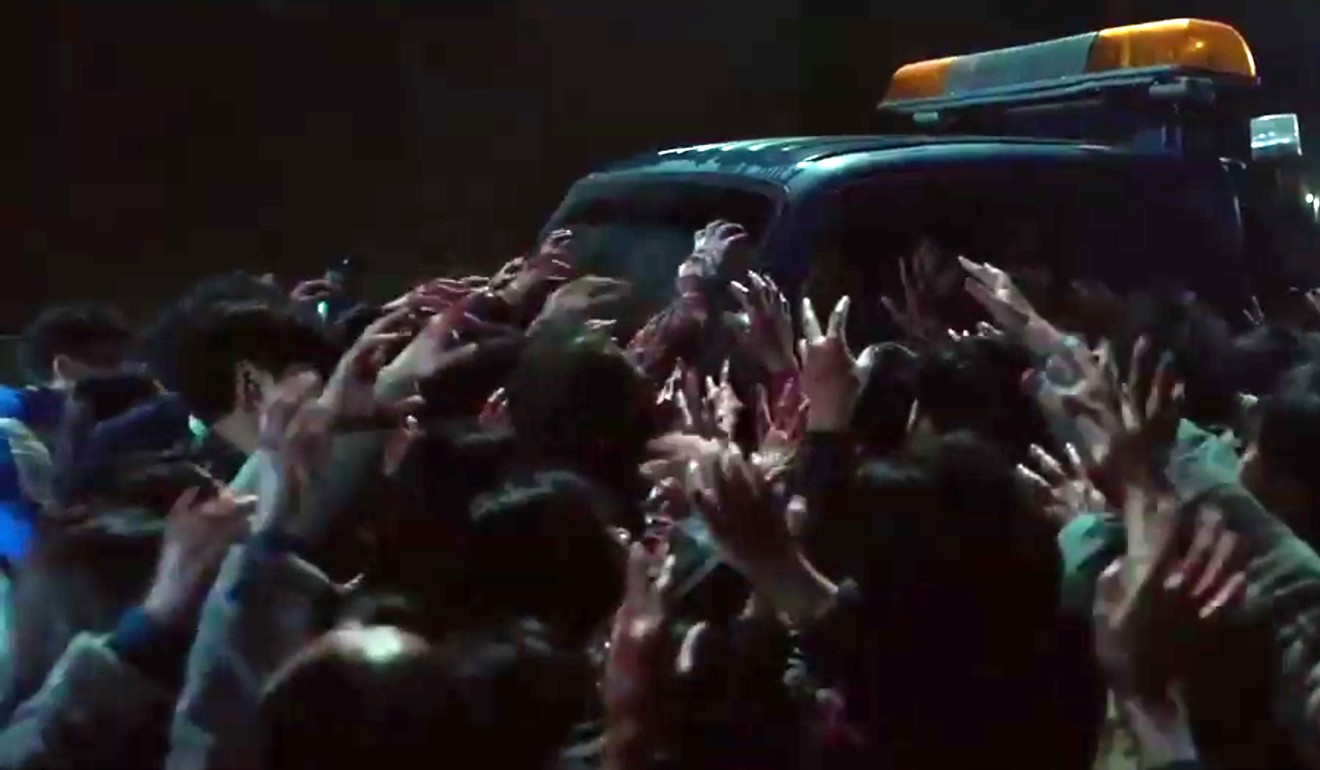
At the same time, in South Korea and elsewhere, zombies have captured the zeitgeist.
“It’s no surprise that we’re at an apex of zombie films and zombie television shows. Many people nowadays are fearing for their economic stability, and for their futures, with the lack of jobs and rise of artificial intelligence. Great directors will take advantage of the times and write a movie that speaks to that fear, and people will respond positively,” said Eric Smaw, a professor of philosophy who teaches a course called “Zombies, Serial Killers and Madmen” at Rollins College in the US.
The Odd Family ’s director, Lee Min-jae, said he sought to tell an intimate story that would hone in on family and community dynamics, which was part of the reason he wanted the story to take place in a rural setting, where the sudden appearance of a zombie would be more likely to cause confusion. “I wanted to find somewhere where people wouldn’t have information about zombies or viruses. If the movie took place in a city, and there was a zombie, they would all know how to react. With the story in the countryside, the people living there react like, ‘A zombie? What’s that?’,” Lee told the magazine Cine21.
While The Odd Family has not reached the lofty box office heights of Train to Busan – selling about 260,000 tickets compared to 11.5 million, respectively – it has done enough to secure overseas sales to Japan, North America, Taiwan and several Southeast Asian countries, according to its distributor, M-Line Distribution.
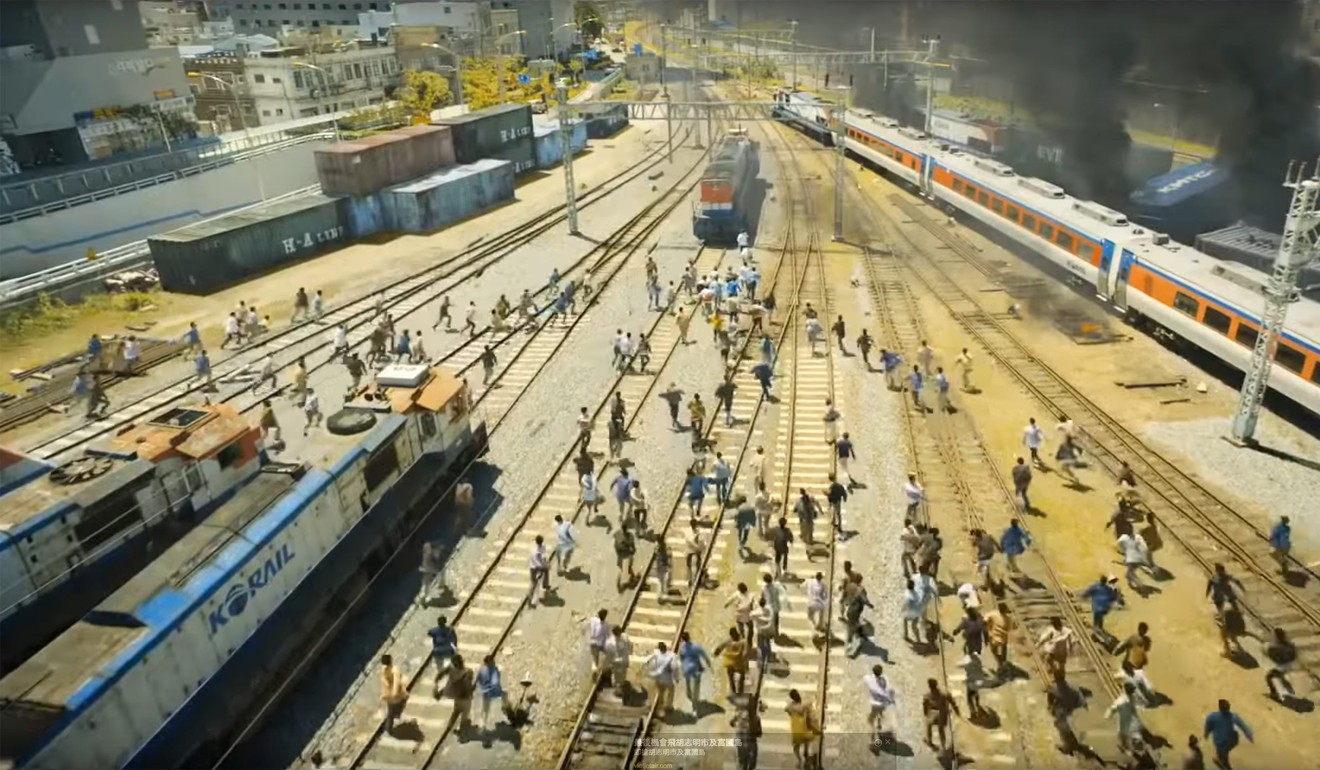
Its critical reception has been mostly lukewarm. The Kyunghyang newspaper commended the actors’ skilful tackling of unconventional roles, but said the film’s gags fell short. “A lot of the jokes aim high, but end up being duds, and it’s tough for the movie to not come across as cheesy. Even if satire is the intention, the lack of genuine humour just alienates viewers.”
Cine21 was more blunt: “It makes no sense, but it’s cute.”
Despite the genre’s present resurgence, zombie films have a relatively short history in the country. The first major South Korean zombie film was A Monstrous Corpse , released in 1980.
“Zombie films have long been regarded as a genre difficult to incorporate into Korean films. Be it because of the preconceived notion that zombies had nothing to do with Korean traditional horror stories, or because the exotic Western culture was said to be already excessively present in Korea, these films failed to find their audience,” Song Soon-jin wrote for the Korean Film Council.
Still, even if the genre faces problems, only a fool would expect South Korea’s zombies to lay down and die. Sure enough, production is to start on a sequel to Train to Busan next year.
If anything, The Odd Family’s reliance on comedy may be a sign of returning to basics in an effort to bring the genre back to life.
“The comical zombie starts to rise when the genre gets too high and needs to be burned down to its core intent,” said Stephen Graham Jones, a professor at the University of Colorado Boulder and author of horror and fantasy stories. “The zombie is this big metaphoric space, and we add all this meaning to it. We forget that the zombie is this ravenous creature that wants to eat us and we can’t negotiate with it.”
He added: “The zombie stories we’re getting lately are very socially responsible. They’re a warning about how we’re living.” ■

